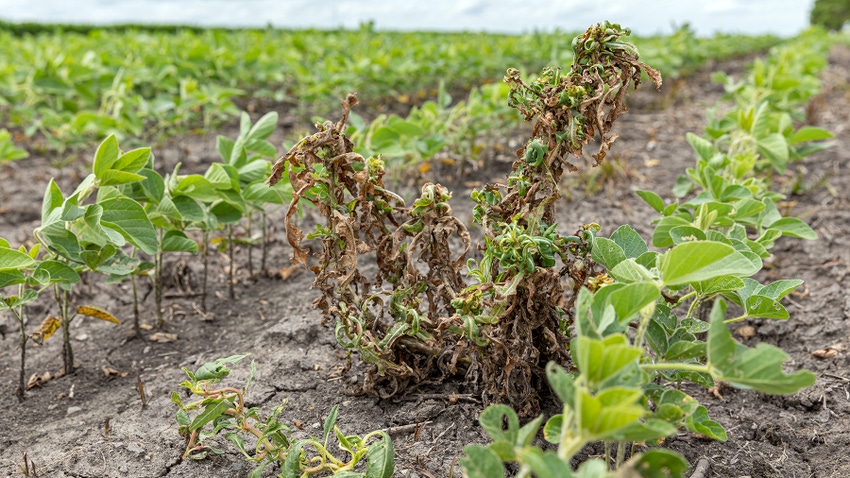
A ruling Tuesday by the U.S. District Court of Arizona in Tucson vacates the 2020 registrations for the popular dicamba products XtendiMax, Engenia, and Tavium. This ruling comes at a time when most farmers already have their herbicide programs booked for the 2024 growing season.
According to court documents, the district court determined the Environmental Protection Agency violated Federal Insecticide, Fungicide, Rodenticide Act rules regarding notice and comment periods for issuing “new use” pesticide registrations for dicamba on cotton and soybeans.
The court addressed the practical effects of the decision, acknowledging many growers have already purchased dicamba-tolerant soybean and cotton seeds and they may have difficulties finding effective herbicides to protect their crops.
The EPA first approved the dicamba-based herbicides in 2017 for over-the-top applications on tolerant cotton and soybeans, and a five-year re-registration was issued in 2020.
The plaintiffs in the case are National Family Farm Coalition, Pesticide Action Network, Center for Food Safety, and the Center for Biological Diversity.
“Every summer since the approval of dicamba, our farm has suffered significant damage to a wide range of vegetable crops,” says Rob Faux, a farmer and communications manager at Pesticide Action Network. “Today’s decision provides much needed and overdue protection for farmers and the environment.”
Not the first hurdle for dicamba
In 2019, the same four groups petitioned the U.S. Court of Appeals to review the EPA’s decision to extend registration for the three dicamba herbicide products. On June 3, 2020, the Ninth Circuit Court found EPA’s registrations were not supported by substantial evidence and the products immediately became unregistered.
That ruling led to confusion regarding what could be done with products already purchased and distributed to farmers, and groups called on EPA for more guidance.
At that time, farmers and commercial applicators were able to use existing product that was already in their possession on June 3, the date of the court’s decision.
Companies prepare to fight back
Bayer, the manufacturer of XtendiMax (previously Monsanto), issued the following statement in response to the ruling:
“We respectfully disagree with the ruling against the EPA’s registration decision, and we are assessing our next steps. We also await direction from the EPA on important actions it may take in response to the ruling. Our top priority is making sure growers have the approved products and support they need to safely and successfully grow their crops. We will keep our customers updated as we learn more from the EPA in advance of the 2024 growing season.”
BASF, the manufacturer of Engenia herbicide, says it is reviewing the court order and assessing legal options while awaiting direction from the U.S. EPA.
“The EPA followed a science-based approach to evaluate and manage ecological risks and balance agricultural and societal benefits before granting the current Engenia herbicide registration,” BASF states. “This order may threaten the livelihoods of soybean and cotton farmers who rely on over-the-top dicamba to control resistant weeds.”
Tavium manufacturer Syngenta also chimed in, expressing the company’s disappointment with the court’s decision as it awaits EPA guidance.
“The use of dicamba is integral to controlling broadleaf weeds and invasive plants,” Syngenta says. “It is imperative that farmers have access to newer dicamba technologies as they work to protect their livelihoods, supply food, and meet ever-increasing weed control challenges in an environmentally safe and sound way.”
About the Author(s)
You May Also Like






